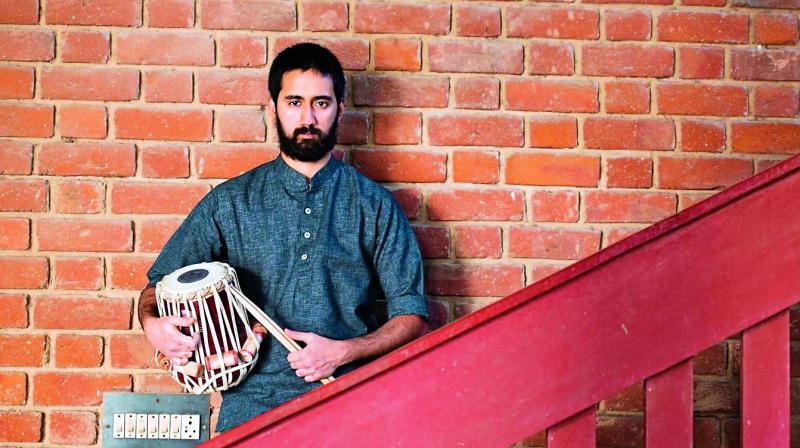The music of migration

He was born in the USA, learnt the tabla in Pune, India and eventually picked up jazz and electronica in London. The twenty-eight-year-old Sarathy Korwar believes that these countries have shaped his music. This influence is evident in his debut album, Day to Day. Ahead of his upcoming tour of India, the musician says that his album is a celebration of the trivial and the mundane. “It is the everyday rituals and tasks that bind us together. The album is a commentary on my identity. It speaks of my relationship with the Siddi community in rural Gujarat (an ethnic group that is descended from the African Bantu and have travelled to India) as someone who has grown up in India and spent a bulk of the last seven years in the UK,” explains Sarath, who is currently based in London.
The migrant community’s hypnotic chants, percussive African-derived polyrhythms and lyrics in Swahili are included in his nine-track album. Ethnomusicologist Amy Catlin-Jairazbhoy put him in touch with a Siddi performing troupe. “The most memorable moment was sitting on the banks of the Narmada recording Salim Gulammohammad Sidi singing his heart out and playing the malunga (a single-stringed musical bow). This was on the evening of Uttarayan and the sky was lit up with tukkals (Chinese lanterns),” he recalls fondly.
Sarathy is just as fascinated by musicians like Charles Lloyd, The Bad Plus, The Necks, Sun Ra, Don Cherry and Zakir Hussain.
One of his earliest memories include listening to his musically inclined parents chant the sargam and paltas. “Both my parents love Indian classical music. They took singing lessons and, in fact, still do. I don’t know why I gravitated towards percussion. My mother tells me that there was a tabla class being offered near my house. She says that I showed an interest in it, so I went ahead with it,” he reminisces.
Sarathy is a graduate in Environmental Science and he supposes, he could have pursued a career in urban planning or sustainable living. Although, if you take one look at his packed schedule, with Magnetic Fields festival in Alsisar and GOAT Festival slated for the next two months, you’d realise he’s in no rush to stray from his chosen field. He advises, “Be prepared for a lot of financial ups and downs (mostly downs). And, if you choose to become a drummer, be prepared to lift a lot of heavy drums round the clock,” he tips off.
Going forward, Sarathy wants to work on themes of identity, collective action and spontaneity. And his second album is already underway with collaborations with rappers and spoken word poets from Dharavi and the UK. Continuing on his path of what he calls ‘soul searching’, he says, “The underlying theme is about being brown in different places and the consequences that come with it. It will be a mix of urban Indian, spiritual/free jazz and Indian classical influences.”

